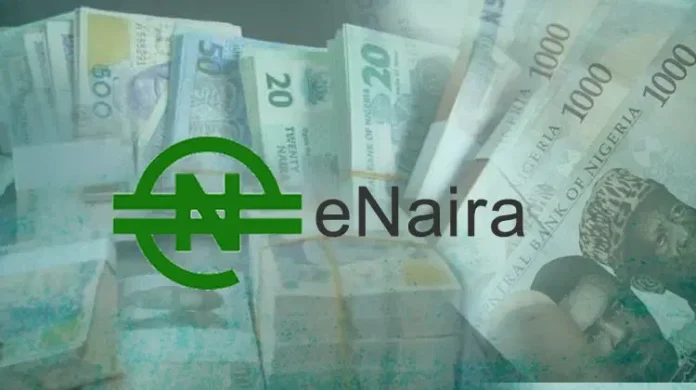The eNaira, Nigeria’s digital currency introduced by the Central Bank of Nigeria (CBN) in October 2021, has recorded significant growth in value, rising by 57% year-on-year (YoY) to N18.32 billion in the first ten months of 2024, compared to N11.66 billion during the same period in 2023. This upward trajectory reflects the increasing adoption and integration of the digital currency into the nation’s financial system.
Quarterly and Monthly Performance Highlights
Data from the CBN’s Monthly Economic Reports reveals that the eNaira’s value remained stable at N13.98 billion in the first quarter of 2024 (Q1’24) compared to the preceding quarter (Q4’23). The second quarter (Q2’24) saw a significant YoY growth of 31%, bringing the value to N18.38 billion. However, there was a slight decline of 0.16% in Q3’24, with the value settling at N18.35 billion. Similarly, on a month-on-month (MoM) basis, the value dropped marginally by 0.16% in October to N18.32 billion.
What is the eNaira?
The eNaira, the digital form of Nigeria’s currency, functions similarly to traditional cash but operates exclusively in a digital space. It requires a digital wallet—referred to as the eNaira wallet—for storage, transactions, and usage. The digital currency was designed to deepen financial inclusion by integrating more citizens into the formal financial ecosystem, reduce cash processing costs, enhance transparency in revenue and tax collection, and promote efficiency in financial transactions. Additionally, it aims to support resilient payment systems, facilitate welfare interventions, and boost diaspora remittances.
CBN’s Vision for eNaira and Payment Systems
Speaking on the future of Nigeria’s payment systems, CBN Governor Olayemi Cardoso disclosed plans for a comprehensive review of the eNaira’s implementation. This move is part of the apex bank’s broader Payment System Vision 2025 initiative, aimed at fostering economic growth by enhancing cross-border payment efficiency and affordability.
At the 59th Annual Bankers’ Dinner hosted by the Chartered Institute of Bankers of Nigeria (CIBN), Cardoso emphasized the eNaira’s potential to drive economic transformation. He remarked:
“To further enhance confidence in the payment system, our Payment System Vision 2025 initiative will drive efforts to encourage quick and affordable cross-border payments, unlocking trade, investment, and economic growth. Additionally, the eNaira, our CBDC, holds significant growth potential. We will, therefore, undertake a comprehensive review of its implementation to optimize its broad and positive economic impact.”
Conclusion
The eNaira continues to show promise as a transformative tool in Nigeria’s financial landscape. As the CBN prepares for a strategic overhaul of its implementation, the digital currency is poised to play a critical role in driving financial inclusion, supporting economic activities, and enhancing the efficiency of payment systems in the coming years.

